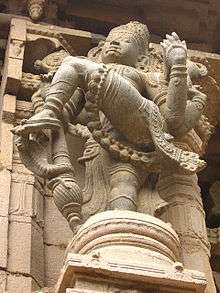Gatekeeper
| Look up gatekeeper in Wiktionary, the free dictionary. |

A gatekeeper is a person who controls access to something, for example via a city gate. In the late 20th century the term came into metaphorical use, referring to individuals who decide whether a given message will be distributed by a mass medium.
Gatekeeping roles
Gatekeepers serve in various roles including academic admissions, financial advising, and news editing. An academic admissions officer might review students' qualifications based on criteria like test scores, race, social class, grades, family connections, and even athletic ability. Where this internal gatekeeping role is unwanted, open admissions can externalize it.
Various gatekeeping organizations administer professional certifications to protect clients from fraud and unqualified advice, for example for financial advisers.
A news editor selects stories for publication based on his or her organization's specific criteria, e.g., importance and relevance to their readership. For example, a presidential resignation would be on the front page of a newspaper but likely not a celebrity break-up (unless the paper was of the gossip variety).
Other people gatekeeping roles in mental health service include clergy, police, hairdressers, and bartenders because of their extensive contact with the public.[1]
Gatekeeper is also a term used in business to identify the person who is responsible for controlling passwords and access rights or permissions for software that the company uses.
History
Kurt Lewin was the first to identify the word gatekeeping. It was first mentioned in his book, Forces Behind Food Habits and Methods of Change. He first applied the concept to the food chain using the example of a female being the person deciding what food is placed on the dinner table. After exploring this idea he started to add to the gating process and how it can change the communication channels. The first person to turn Lewin’s words into a journalism idea was David Manning White in the 1950s. Then in the 1970s ideas about the influence of gatekeepers and their decisions were further developed by Maxwell McCombs and Donald Shaw in their construction of agenda setting theory.[2]
Academic peer review
Peer review is a practice widely used by specialized journals that publish articles reporting new research, new discoveries, or new analyses in a specific academic field or area of focus. Journal editors ask one or more subject matter experts deemed to be "peers" of an article's author or authors to assess an article's suitability for publication in the journal. Notwithstanding the fact that the intent of peer review is to insure suitability and editorial quality, issues of preference or exclusion of articles are raised from time to time relating to the intellectual prejudices, career rivalries, or other biases of the journal editors or peer reviewers.[3]
Credentials
Credentialing is the practice of evidencing suitability for engaging in a profession or for employability through documentation of demonstrated competency or experience, completion of education or training, or other criteria as specified by a credentialing authority. The documentation provided by the authority are known as "credentials", and may be in the form of a license, certificate of competency, a diploma, a teaching credential, a board certification, or a similar document. Credentialism refers to the practice of relying on credentials to prove the suitability of a professional person or a skilled employee to be assigned the responsibilities of professional engagement or employment.[4]
Employers may use such gatekeeping methods to ensure competence for the job, or to accede to the pressures of organizations that award credentials to require specific credentials.[5][6]
Internet search engines
Internet search engines in China have openly been restricted at the command of the Chinese government to exclude search terms that the government disapproves of.[7]
See also
References
- ↑ Bissonette, R. (Spring 1977). "The Bartender as a Mental Health Service Gatekeeper: A Role Analysis.". Community Mental Health Journal. 13 (1): 92–99. PMID 844291.
- ↑ "Gatekeeping". Utwente.nl. Retrieved 2014-08-14.
- ↑ "For Science's Gatekeepers, a Credibility Gap". The New York Times. 2 May 2006.
- ↑ Effective Operations and Controls for the Small Privately Held Business, Rob Reider
- ↑ http://www.timesandseasons.org/?p=3134
- ↑ "A Closed Profession?—Recruitment to Social Work". Bjsw.oxfordjournals.org. 2014-07-05. Retrieved 2014-08-14.
- ↑ Dani Marrero (12 February 2015). "Chinese Internet restrictions affect social media, search engines". The Suffolk Journal. Retrieved 22 May 2015.